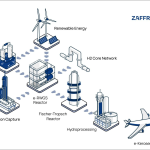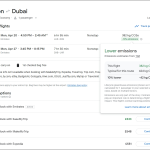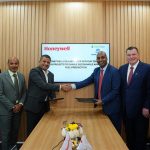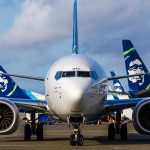DG Fuels (DGF), a New York-based renewable energy start-up, has announced a $4 billion-plus sale to an undisclosed industrial client of 230 million gallons of sustainable aviation fuel plus a combination of Californian SAF and Federal carbon credits generated by DGF’s new Louisiana production plant. The deal is DGF’s third major SAF agreement in as many months, following the sale to Delta Air Lines of 385 million gallons of the fuel, and a further 210 million gallons commitment by Air France-KLM, a total of 825 million gallons. All the SAF will be produced by converting cellulosic biomass feedstock such as timber waste, using a new high carbon conversion efficiency system, which is designed to use up to 97% of the carbon contained within the fuel feedstock, minimising the need to permanently store unused carbon. The company estimates that through this patented process it can produce three-to-four times more SAF than competitors can from the same amount of feedstock. DGF has also announced plans to develop a second SAF production plant in the East Coast state of Maine.
DG Fuels’ latest deal provides for SAF deliveries to the undisclosed “investment grade” industrial buyer of 46 million gallons per year over five years. DGF expects that the total volume of 230 million gallons will deliver life cycle emission reductions of up to 3.5 million metric tons over the initial minimum term of the agreement. The company also expects its new production process to deliver a carbon intensity (CI) score of -39 grams per megajoule, 140% less than conventional Jet A fuel.
As well as buying SAF, DGF said the customer would buy all State of California low carbon fuel standard (LCFS) credits and all US Federal renewable identification number (RIN) carbon credits generated by the Louisiana facility, commencing in late 2026 or early 2027. Based on today’s prices, the company valued the combination of SAF plus the California and federal credits at more than $4 billion over the five-year term of the combined SAF and carbon credit purchase deal.
“With this agreement, combined with our previously-announced offtake agreements, DGF has sold out 100% of the expected initial production of approximately 120 million gallons per year,” said Christopher Chaput, the company’s President and CFO.
To help accommodate continued growth in demand for SAF, DGF has announced plans for a second production plant in the US, to be located on the site of the former Loring Air Force Base near Limestone and Caribou in Aroostock County, Maine. The company has signed long-term leases with the Loring Development Authority for 1,240 acres (500 hectares) of land, part of which was once used as a base for military aircraft including B52 bombers and Boeing KC-135A aerial refuelling platforms. Subject to financing, construction is expected to commence in summer 2024 and be completed by 2027.
Michael Darcy, CEO of DG Fuels, said the new plant in Maine would produce “little or no environmental emissions” while also supporting the local economy by providing a customer for waste from the timber industry plus “all forms of agricultural waste”.
The company said that at its initial expected output of approximately 175 million gallons per year, SAF produced at the Maine plant would effectively remove an annual 1.5 million tons of CO2 from the atmosphere.
“The location in Northern Maine affords DGF key logistical and environmental advantages,” the company said. “The ability to import stranded hydro-electric power and regional timber and agricultural waste while exporting net zero carbon SAF by pipeline helps reduce the overall product carbon intensity. DGF’s SAF formula also has a higher energy density than conventional Jet A, providing our airline customers with operational advantages in addition to the environmental benefits.”
While it is yet to decide which markets will be served by the Maine SAF facility, DGF said it was “actively exploring” the delivery of SAF to airports in New York City and other major East Coast destinations, as well as markets supported by state incentives, similar to credits offered in California.












More News & Features
SAF One announces new investment and technology partners for Middle East SAF project
New initiative formed to accelerate SAF adoption and production in the Pacific Northwest
EcoCeres opens new Malaysia production facility as SAF ambition in Asia scales up
Aviation, shipping and fuel leaders convene in Rotterdam to accelerate sustainable fuels scale-up
EU SAF mandates will have to be revised, predicts French oil chief
Lessons learned from the collapse of Fulcrum BioEnergy